'Lockdown is murder': A postcard from St Petersburg, a city desperate for tourists to return
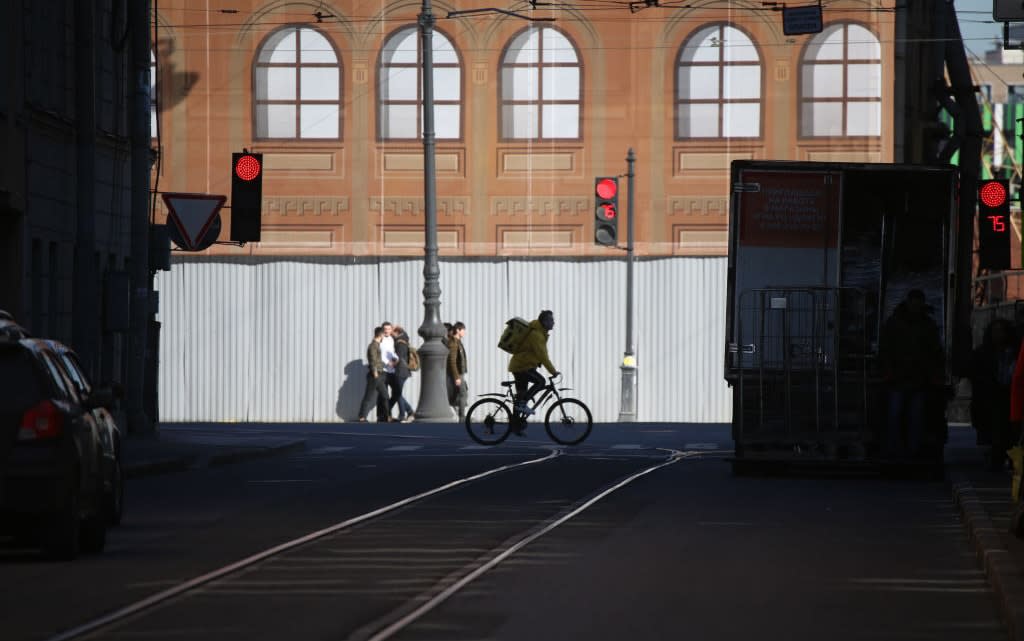
Lockdown restrictions are easing, but local business owners still fear financial ruin
It did not come to this even during the deadly Siege of Leningrad: St Petersburg’s numerous rivers and canals, typically filled with boats, are eerily still this summer, robbing locals and visitors of the best view of the city’s spectacular palaces and monuments.
The unprecedented ban on boating that was only lifted last Sunday is just one of numerous sweeping coronavirus restrictions that have paralysed this Baltic city that has grown increasingly reliant on tourism.
Nikolai Predtechensky, who runs Petrograd, which operates 120 boats and yachts, is largely fatalistic about the industry’s prospects.
Like an overwhelming majority of small business owners in Russia, Mr Predtechensky, 33, has not received any substantial government aid and was turned down when he applied for a zero-interest loan.
“Imposing a three-month lockdown without any significant payments to people... it’s murder for all of the small and medium businesses,” he told me.
Stay-at-home orders were issued in St Petersburg at the end of March, just as the tourist season began. The visitor rush usually reaches its climax in June during the so-called White Nights, when the sun does not go down until 11pm, spurring everyone, from party goers to elderly couples, to go outside and enjoy the sea breeze that blows through the city even during heatwaves.
Two weeks into coronavirus lockdown, Alexander Zatulivetrov, who has worked in the restaurant industry for 25 years, issued a defiant statement, saying he would re-open of his cafes unless the government imposed an official state of emergency. The Kremlin never made such announcement, allegedly in order to dodge the financial burden of furlough.
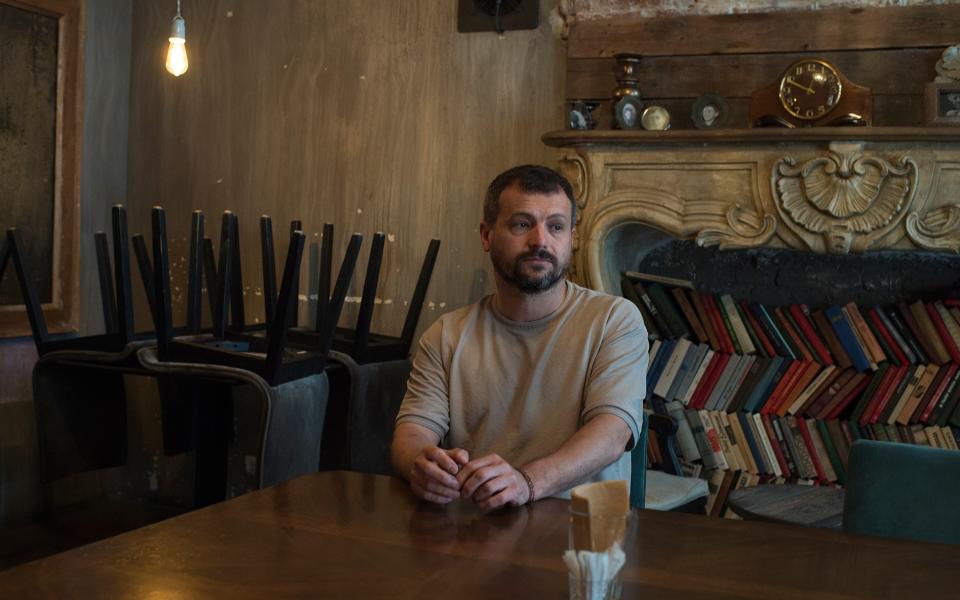
“[My statement] was a cry for help,” said Mr Zatulivetrov, sitting at his cafe, a former warehouse where a historic fireplace stands by an exposed brick wall.
Mr Zatulivetrov, 48, closed two out of his four restaurants, managed to get a discount on rent from his landlords and is now trying to keep the other two afloat on skeleton staff.
In the end, he never dared to flout the lockdown rules – he would have risked receiving a 400,000 ruble (about £4,700) fine – but hundreds of others did.

St Petersburg’s iconic Rubinstein Street, lined with hipster bars, glitzy restaurants and pizza parlours, was as lively on a recent weekend as before the epidemic. Music blasted into the night and young couples perched on the window-sills of cocktail bars.
Coronavirus claimed at least 1,100 lives in St Petersburg, and with a general distrust in official statistics, lockdown restrictions quickly began to fray.
Outdoor cafes were not allowed to operate until June 22, but a number of food businesses began to defy the lockdown orders weeks before that.
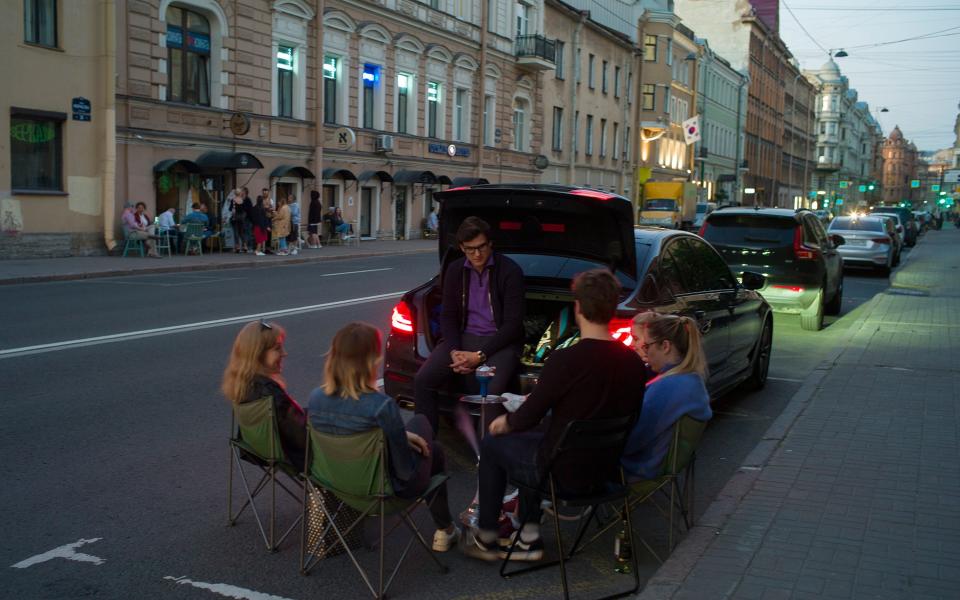
Alexander Konovalov re-opened 73 of his cafes, big and small, in May, when he realised that the Kremlin had left him high and dry. For him and his employees, it was a matter of survival.
“They forced us to look out for [our]selves: we now only have ourselves to figure out how to make it through,” he said.
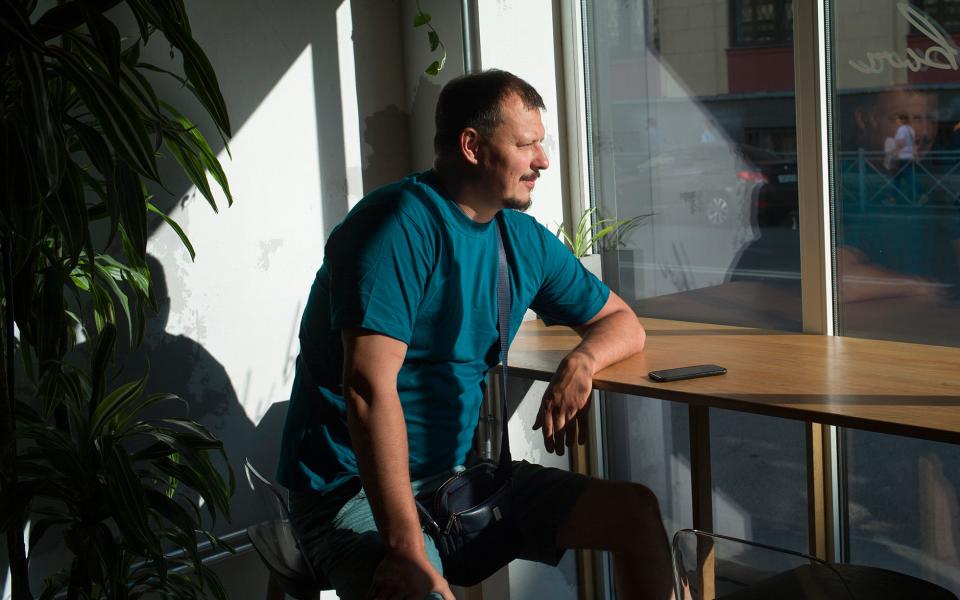
While European cities, such as Venice and Amsterdam, welcomed a break from the tourists hordes, the former Russian imperial capital prays for the borders to open.
Local businessmen have for years catered for European travellers who come to see Rembrandt and Rubens at the Hermitage museum and watch The Nutcracker at the historic Mariinsky Theatre.
Borders between Russia and the EU are closed indefinitely, filling locals with dread.
“It’s a big loss to us,” Mr Predtechensky says, speaking of European tourists. “We’re talking about the tourists who stay at good hotels and support the demand for quality services.”
St Petersburg welcomed more than 10 million visitors last year, a whopping 27 per cent increase compared to a year earlier, and at the start of 2020 was expecting more after travellers from 53 countries were made eligible for free e-visas for short-term visits. Russian authorities also lifted all restrictions on flights operated by foreign airlines in and out of St Petersburg in a bid to lure European low-cost airlines.
Mr Zatulivetrov’s ButerBrodsky cafe, whose name blends the Russian poet Joseph Brodsky with the Russian word for “sandwich”, specialises in Scandinavian cuisine but is now working to re-adjust the menu to target a domestic audience.
Pizza parlours and breweries appear among those in the local restaurant industry doing well even in the absence of foreign tourists.
Belgian brasserie Trappist, situated near the historic Tauride Palace, which hosted Russia’s imperial parliament and two rival governments before the 1917 Bolshevik Revolution, has grown to rely on online orders for its seemingly infinite varieties of beer.
In a place where residents, by the end of June, largely grew tired of wearing face masks, floor manager Alexander Skitsan greets visitors in full gear: he is wearing a face mask, a cap, a plastic gown and gloves.
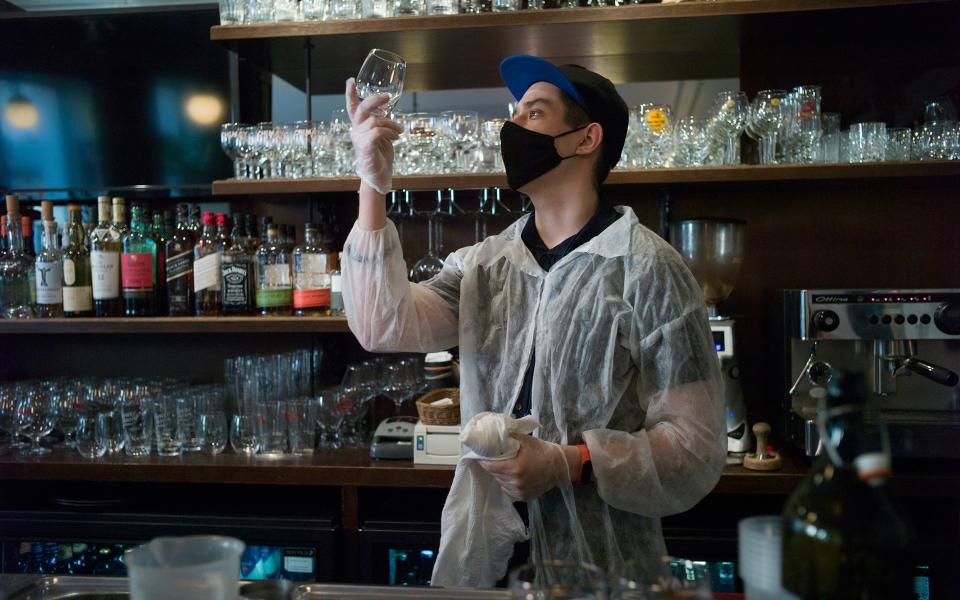
Mr Skitsan and other staff who were polishing beer glasses in an empty bar on a recent visit are counting the days to the re-opening.
“We really can’t wait to greet customers again: with a one-metre distance, two-metre distance – we don’t care as long as we can host people and bring them joy,” he said.


